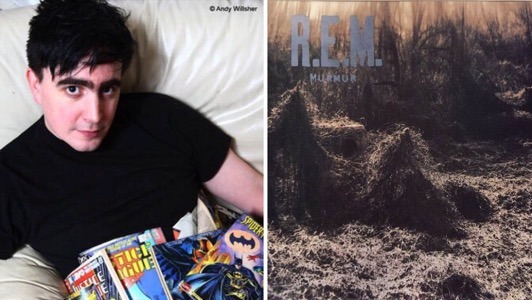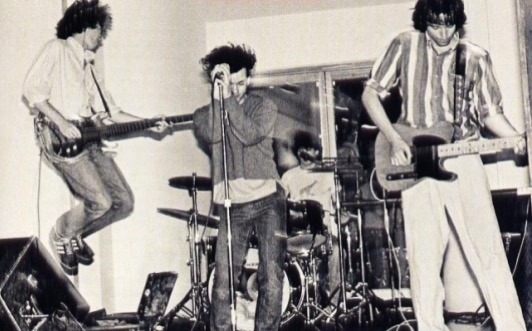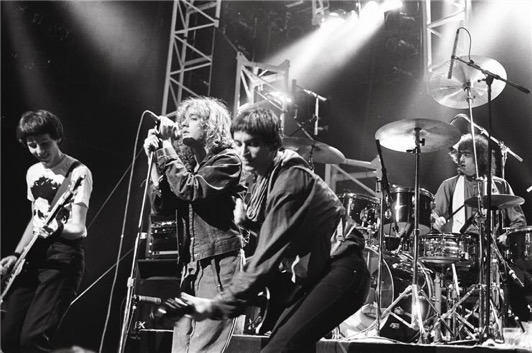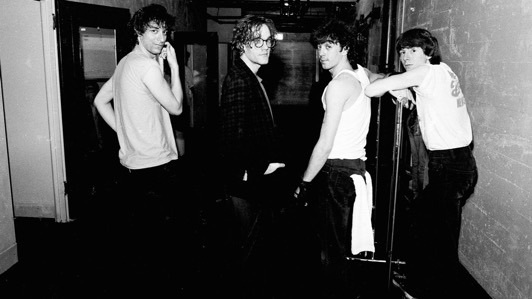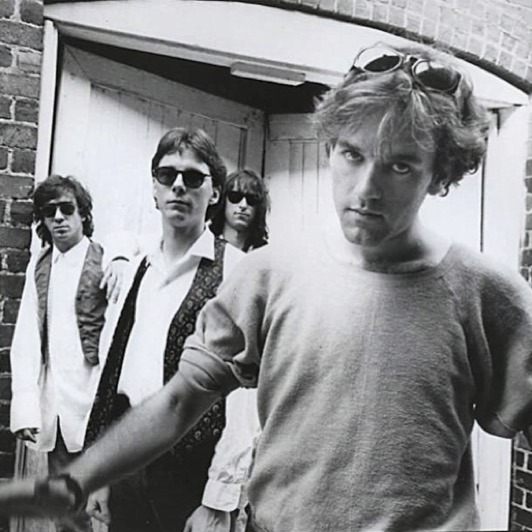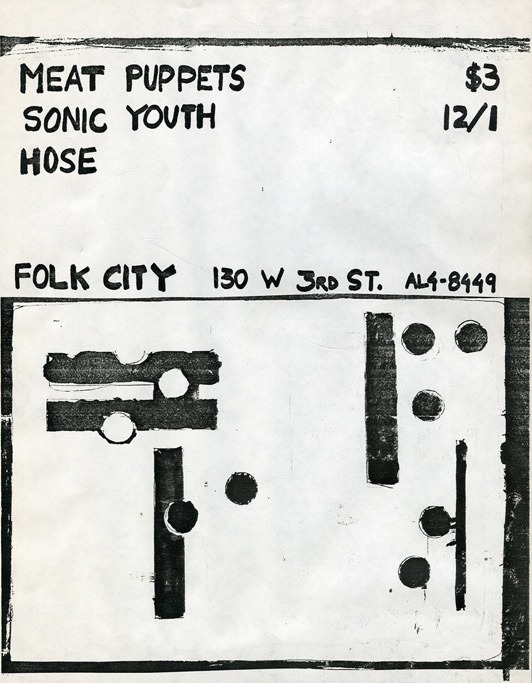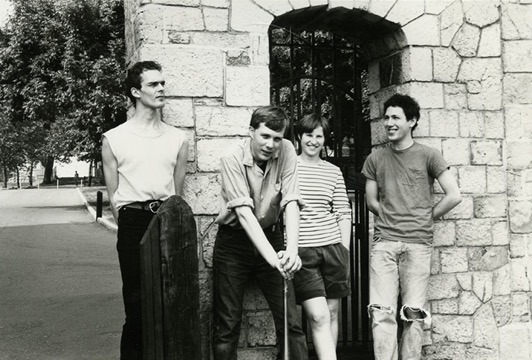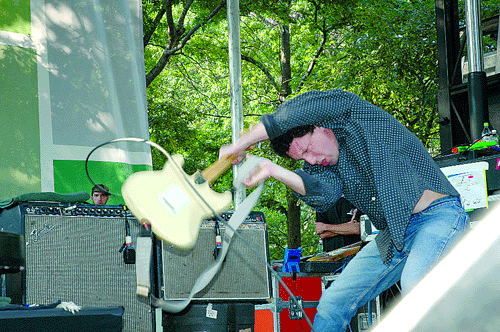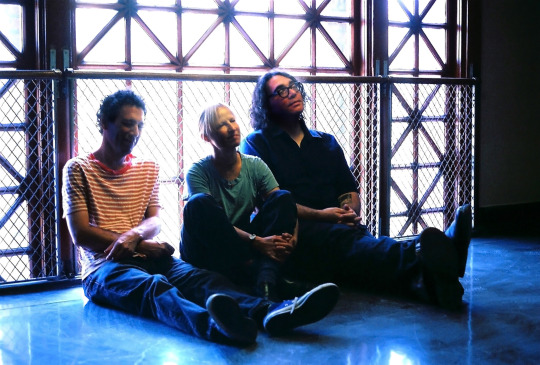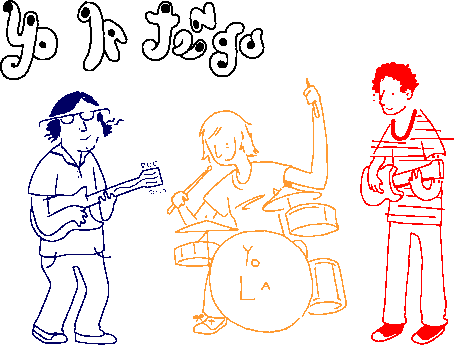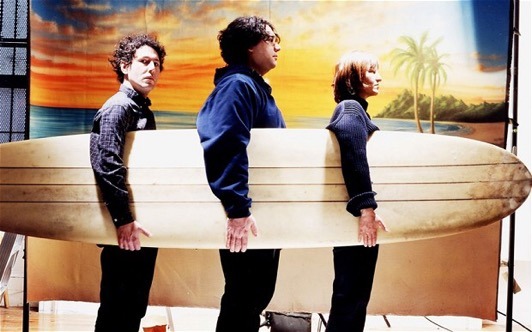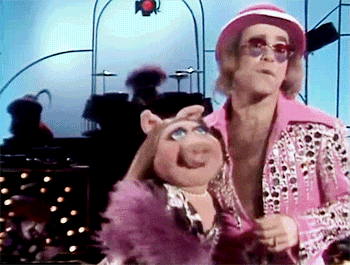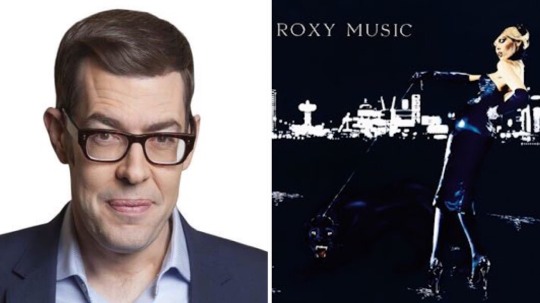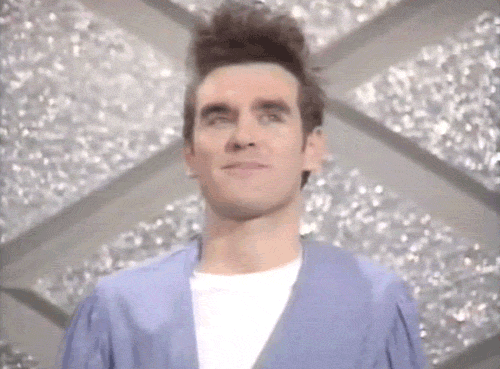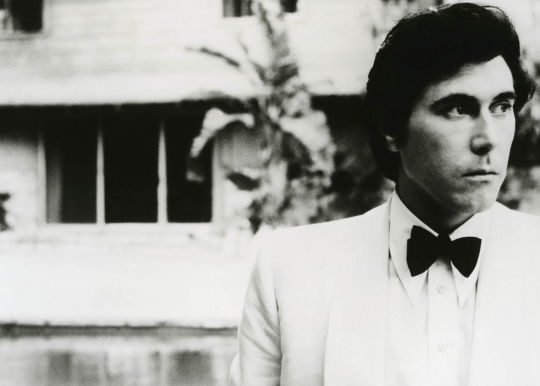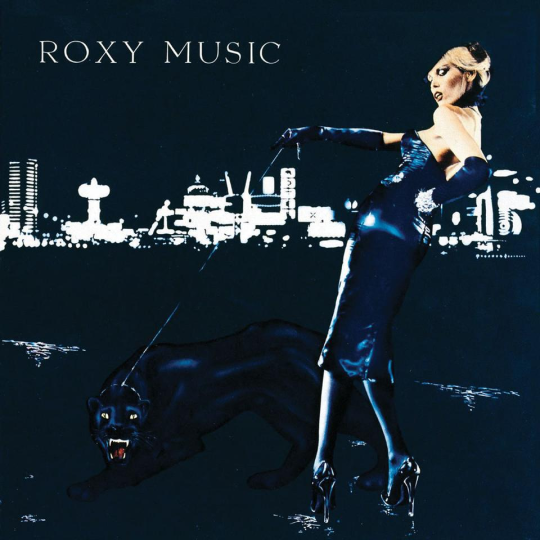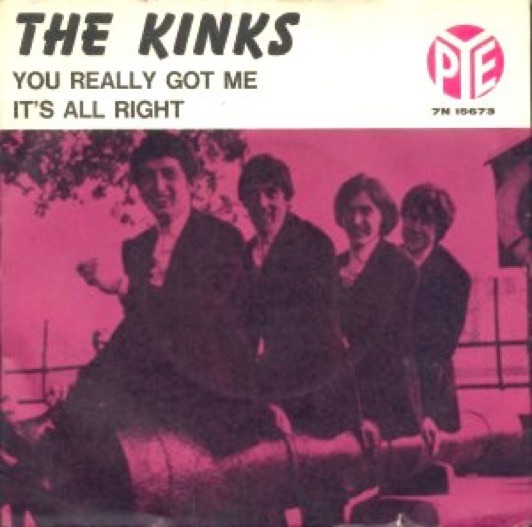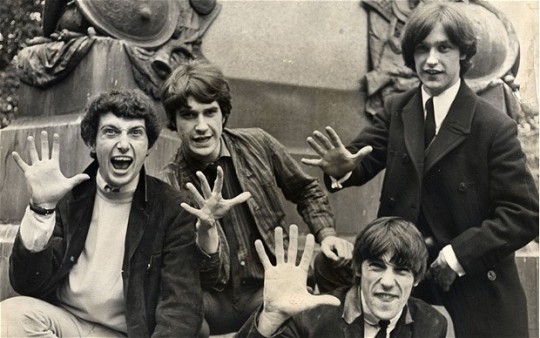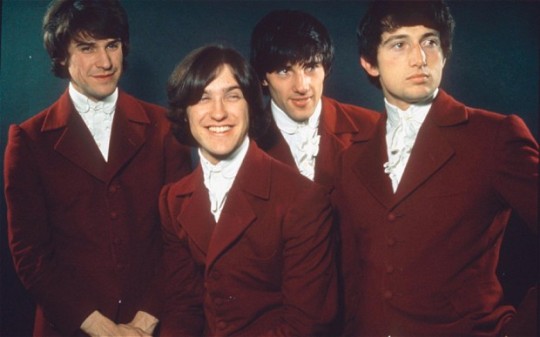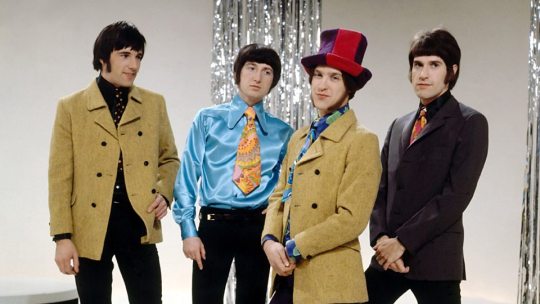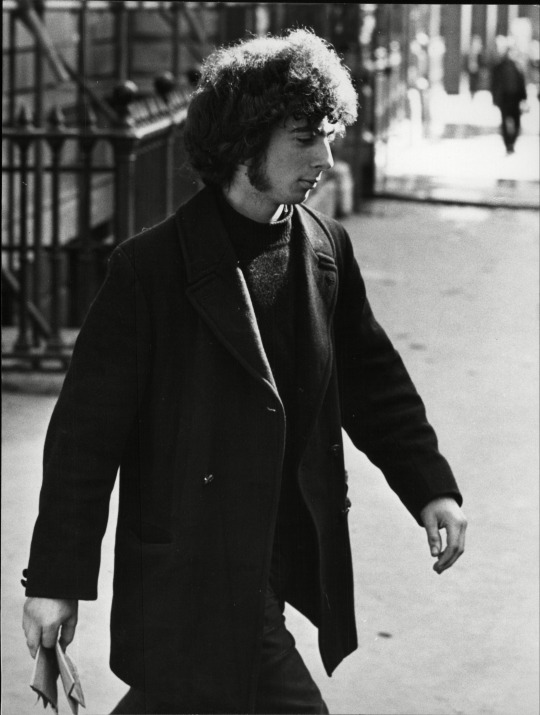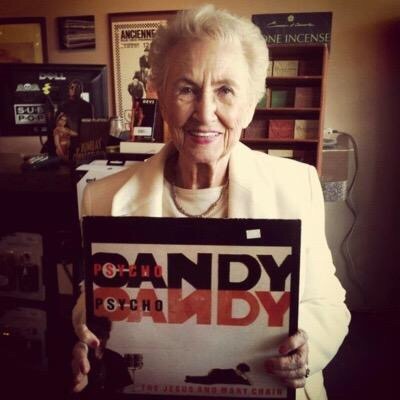Guest Listener - Lavinia Greenlaw

Who’s Lavinia when she’s at home?
I write books, mostly poetry but also including The Importance of Music to Girls and a novel about Seventies Essex and the coming of punk called Mary George of Allnorthover.
Lavinia’s Top 3 albums ever?
Mary Margaret O’Hara – Miss America
The Pop Group - Y
Can – Monster Movie
What great album has she never heard before?
Bat out of Hell by Meat Loaf
Released in 1977
Before we get to Lavinia, here’s what Martin of Ruth and Martin’s Album Club thinks of Bat out of Hell
All right everyone.
I had this week’s edition all planned out.
It was going to be all about “Guilty Pleasures” and how that’s such a strange concept in relation to music.
Basically, to cut 2000 words short, why the guilt? Why not just like what you like and be proud of it?
Why did my mate Dave, for example, feel like he had to apologetically “come out” as a Beautiful South fan that time, as if confronting some dark secret that had tortured him all his life -
“You see…….the thing is…..when all’s said and done….they do write some really good pop songs you know.”
"It’s fine Dave.”
So that was the plan. There’d be no potted biography this week - just a load of stuff about “guilty pleasures” and a bit where I publicly humiliate Dave for liking that song about the fella who loves girls from the bottom of his pencil case.
I was all set, looking forward to it.
And then I read Meat Loaf’s autobiography, To Hell and Back, and my head fell off.
It’s genuinely unlike any other biography I’ve ever read, in fact it’s unlike any book I’ve ever read. There was NO WAY I could not tell his story.
Dave was out, and Meat was in.
Here we go.
In my humble opinion, most artist biographies make the mistake of dwelling far too long on the subject’s childhood. There’s always at least a page about the occupation of the Grandparents (WHO CARES!) and loads of quotes from unknown school kids who have since been interviewed as unknown adults - “You could always tell XXX was going to make it,” mumbled Kevin, an allotment supervisor from Barrow in Furness.
Meat Loaf, though, turns this convention on its head and provides the best childhood biography I’ve ever read. In fact it was so good, I almost didn’t want him to grow up and become famous.
Just in case you don’t believe me, I’ve collected here for the first time, my Top 7 moments from Meat Loaf’s childhood.
1) He absolutely LOVED a 7-Eleven.
In an effort to stop him visiting the store, his mum tied him to the clothesline in the garden with a massive rope.
Meat Loaf would always manage to untie the knot though and his parents would eventually find him in the 7-Eleven, covered in Dr Pepper and Hot Dogs.
Eventually, and this isn’t a joke, the family thought it was easier to move to somewhere without a 7-Eleven nearby.
I know, right. What a great start. There’s another 6 of these.

2) He had a terrible imaginary friend called Bad Bob.
Bad Bob convinced him to pull a wasp’s nest out of a tree. As he held the nest, he started to hear it buzz (no shit), and lost his balance. He fell to the ground, with the wasp’s nest on top of him, and was stung multiple times.
He had to be wrapped up in bandages and looked a bit like an overweight Invisible Man.
All I’m saying here is that Bad Bob is the worst imaginary friend I’ve ever heard of, even worse than that one out of The Shining.
3) His real name was Marvin Aday and he changed it because of a Levi’s ad.
Even as a child, he was always big and struggled to find clothes that could fit him. Then a Levi’s ad came along with the tag line - “Poor fat Marvin can’t wear Levi’s”.
He was devastated - as if the advert was deliberately mocking him and he was the punchline to everyone else’s joke.
So he started going by the name Meat Loaf instead because, er, the last thing he wanted was a name that’s going to draw attention to his size.
He’s still never forgiven Levi’s either and, in a fantastic exchange, writes -
“I’ll buy Wrangler. I’ll buy Guess. I’ll buy anything, but I refuse to this day to wear Levi’s"
If someone could put that to music I reckon he’d have another number one.
4) Other parents didn’t want him playing with their kids.
He tried to play with this kid once and his mother came out of her house and yelled - "You can’t play with my son, you’re too fat!”
He picked up a broom and smashed her window.
Reflecting on the incident, he writes -
“Being too fat to play with the other children probably has a lot to do with the way I am today. I’m usually alone in my hotel room from right after the show until the next day’s sound check. And I’m never bored; I don’t get bored. Probably because mothers wouldn’t let their kids play with me.”
I mean, I’ve read as much Camus as the next guy but that is some proper existential shit from Meat Loaf.
5) He didn’t really like music as a kid.
In fact, he only liked 4 songs.
3 of them are really good - Sixteen Tons by Tennessee Ernie Ford and Running Bear and Teen Angel by Johnny Preston. But the fourth one was Life in the Fast Lane by The Eagles and that massively disappointed me.
It reminded me of when Michael Owen admitted to only seeing 5 films and one of them was Cool Runnings.
6) He kept getting knocked out.
In the course of his childhood, Meat Loaf gets knocked out 17 times in a variety of comic accidents - the best one being when he got hit on the head by a shot put at an athletics meeting.
I know it’s one of the best ones because he’s helpfully included a chapter entitled My Favourite Concussions - a first in all the rock star biographies I’ve read.
7) Meat Loaf and the JFK Assassination.
I know, that’s a sentence I never thought I’d write either.
On the 22nd of November 1963, Meat Loaf and his mates went to greet JFK when he arrived at Love Field Airport in Dallas - managing to sneak through a gap in the fence and get up close to the President and his wife.
An hour later, they’re driving along when a secret service man stops their car in the middle of the road and makes them drive him to Parkland Hospital. He tells them the President has been shot.
They get to the hospital and see all the chaos first hand - Jackie covered in blood, a wounded Governor Connolly, and loads of people in hysterical grief. Apparently there’s a photo somewhere of a group of African American women crying their eyes out next to a confused Meat Loaf - the would be singer, not the meal.
Again, reflecting on the incident Meat Loaf indulges in wondrous speculation about what happened that day and even considers whether the secret service man that stopped him was part of the conspiracy. He ends by saying that Oswald definitely didn’t do it before adding his own helpful conclusion -
“Not that I know who did it. I don’t”
Thanks Meat.
Long term readers of this blog, all 8 of them, will remember that the JFK assassination is a particular hobby of mine and I’ve been “studying” it for years. As I read Meat Loaf’s account, a thought suddenly struck me that I’ve been unable to shake ever since.
As the presidential limousine turned on to Elm Street, with the book depository overhead and the grassy knoll on the right, what if JFK actually turned to Jackie and said -
“Remember those kids back at Love Field Jackie? Was it me, or were they calling the big one Meat?”
What if they were his last words?
I guess we’ll never know.

Right then, that’s the 7 complete. So let me now up the tempo and race through the transformation from childhood to Rock legend - not that the story gets any more sensible.
After his abusive father tried to kill him with a butcher’s knife (I told you), Meat Loaf escapes to L.A. and starts performing in a series of bands until he forms one of his own - Meat Loaf Soul.
To say they were an odd bunch is probably an understatement. Meat Loaf was barefoot and wore a tuxedo, the drummer was dressed like a clown, and the bass player wore an Indian costume. Oh, and there was woman called Sue who was dressed like a swan.
Did I mention the drummer didn’t have any fingers?
The drummer didn’t have any fingers.
After receiving zero interest from record companies, the band split up.
He also had a weird encounter with Charles Manson where the would-be serial killer told Meat Loaf he used to be a cat in a former life.
Again, not vital to the story, but how am I supposed to not mention that?
Right, what’s next?
During a job interview for a parking attendant in a theatre, a nearby casting director asks Meat Loaf if he can sing and offers him a part in the musical Hair. The show is a huge success and he finds himself on Broadway singing that Aquarius song.
It’s also around this time that he meets Jim Steinman - a slightly weird fella who wore leather gloves and had a portfolio of REALLY long songs where people lost their virginity to spine tingling baseball commentary.
We’ll come back to him in a bit.
Next, Meat Loaf gets offered a part in a new musical called The Rocky Horror Show. Again, it’s a massive success and EVERYONE came to see the show - John Lennon, Elvis Presley, and Keith Moon to name a few. In fact Moon was so taken by Rocky Horror that he was a regular at the theatre, sitting in the front row with 9 bottles of champagne on the stage - one for each member of the cast.
The musical then gets made into a film, The Rocky Horror Picture Show, but bombs on its release. Meat Loaf then appears in a Shakespeare musical called Rock a Bye Hamlet, which sounds like the worst thing ever, and decides to quit musicals for good.
Instead, he went back to that Steinman fella and started working on those REALLY long songs.

What happens next is my probably my favourite bit in the whole story.
Rather than doing what normal bands do, i.e. record a demo tape, Meat Loaf decided it would be a good idea to perform the songs live in front of label executives. Typically this would involve Meat Loaf, Jim Steinman on piano, and a singer called Ellen Foley going through an early version of Paradise by The Dashboard Light.
The record labels hated it as soon as it started and were further appalled when they got to the bit in the song where Meat Loaf and Ellen Foley started to make out with each other RIGHT IN FRONT OF THEM!
It’s some image - a 25 stone man in a frilly shirt getting off with a slim blonde, whilst some weirdo sits in the corner playing the piano with his leather gloves on.
Unsurprisingly, they didn’t get a deal.
It was only when the songs came to the attention of Todd Rundgren, the former New York Dolls producer, that they started to get somewhere. He thought the songs were so “out there” that he had to get involved - giving the material a whole new arrangement and recruiting various members of the E-street band to flesh out the sound.
The turning point came when Steve Van Zandt heard the intro to You Took the Words Right Out of My Mouth and decided it was the best 15 seconds of music he ever heard. With his help, they brokered a deal with a small label called Cleveland International and, finally, in 1977 they released Bat out of Hell.
You all know the rest - it stayed on the charts for a thousand years and everyone has an opinion on the album.
Very briefly, here’s mine.
It’s brilliant.
Who on earth opens an album with a song like Bat out of Hell? The song tries to end about 10 times and when it finally finishes you wish it hadn’t.
I love that bit where he spells it out -
“THEN. LIKE. A. SINNER. BEFORE. THE. GATES. OF. HEAVEN. I’LL. COME. CRAWLING. ON. BACK. TO. YOU.”
I love the handclap ending of You Took the Words Right Out of My Mouth.
I love everything about Paradise by the Dashboard Light and Ellen Foley’s “Stop Right There!” is an absolute fucking moment. I mean, if you’re going to interrupt one of the best songs ever that’s how you do it.
But more than all of that, I think I just love him. It’s the way he seizes his moment - not with anxiety but with total joy.
I love the fact that he turns his autobiography into a picaresque comedy and invites you to laugh with him - Bad Bob, his Favourite Concussions, and his ongoing feud with Levi’s. It’s so brilliant, he’s taken me over my word count and I don’t even care. In the hands of anyone else his story would be a rags to riches cliché and the seriousness would kick in when he made it - “I’m an artist now. Remember Kevin? He always told you that I would be.”
In the hands of Meat Loaf, though, it’s fun all the way.
I imagine he’s exactly the sort of guy that doesn’t have guilty pleasures.
Martin Fitzgerald (@RamAlbumClub)

The Critics on Bat out of Hell
Rolling Stone ranked it the 343 greatest album of all time.
There isn’t a retrospective Pitchfork Review, which I’m gutted about, but they’d definitely give it a 10.0
It still sells 200,000 copies every year and I reckon those 200,000 people are the happiest 200,000 people on the planet – for at least a week.
So, over to you Lavinia. Why haven’t you listened to it? WHAT’S WRONG WITH YOU?????
In 1977, I was confused. I had been immersed in disco, funk and soul, but was terrible at being a girl and unable to adhere to disco-girl standards. That year I abandoned all attempts to fit in. I cut off my hair, ripped my jacket, hid my Motown and then I hesitated. I was thrilled by punk but it kept hesitating too. I watched The Jam perform on Marc Bolan’s TV show and The Pistols torment Bill Grundy, and couldn’t understand why this didn’t immediately change everything.
I was forgetting the torpor that lay on the land. When I was eleven, my family moved from London to an Essex village. Growing up in Seventies provincial England was like being subjected to a stronger form of gravity. Teenagers plodded about, oppressed by maxi-skirts and flares, platforms and drooping hair, lumbering humour and hushed violence. There was a deep-held suspicion of foreigners and glamour, art and sex, which were just the things I was looking for. I wasn’t going to find them in pub rock, prog rock or rock operas, and Meat Loaf draws on all three.

Nothing prompted me to seek Meat Loaf out. At the time, I would have categorised this as music for people who aren’t serious about music. It seemed generalised and efficient. I had friends who felt strongly about Yes, Led Zeppelin, Bowie, The Carpenters and Marvin Gaye but I didn’t know anyone who felt strongly about Meat Loaf so no one made me listen. Up until last week I couldn’t have told you the names of more than a couple of his songs although fragments have apparently stuck: ‘Like a bat out of hell something something something dawn’, ‘Will you love me for ever? Let me sleep on it something’, ‘You took the words right out of my mouth. It must have been while something something something’.
In 1978 I caught Meat Loaf on The Old Grey Whistle Test singing Paradise by the Dashboard Light. I couldn’t have told you that was the song – I had to look it up. What I remembered was his hair, so baby-fine and overgrown, as if uncut from birth. And that he was wearing a shirt with precision frills and clutching a massive handkerchief. The song and his voice made no impression but then from behind Mr Loaf appeared this gorgeous woman, all weary and fierce, being theatrical as hell but in a way that made everything sharper and deeper. This was Ellen Foley, and her voice was also sharp and deep. She was all needle while he was all handkerchief.
The problem was also that I’d seen this before and done much better by The Tubes with Don’t Touch Me There: a motorbike not on the album cover but onstage, not just kissing but writhing, extreme theatre, and music that broke itself open.
You’ve now listened to it, at least 3 times, what do you think?
Now I know that Bat Out of Hell was intended to be a musical, I can practically hear the curtain going up. At first I thought I was listening to a medley from Tommy. There’s a two-minute frenetic overture that says we’re going to give you this and this and this: proggy piano twiddles, yawning guitar breaks and great walls of everything else. On first listen I found the album over-structured and under-formed, although those hooks that have stayed with me for almost forty years now seem quite brilliant. Having listened three times, I still can’t get a grip on what lies on either side of them, nor can I get them out of my head.
I approached each song full of good will only to be frustrated by all the stopping and starting. By third listening this felt less jarring as I knew what was coming but I didn’t feel I could dance or drive to this, that I would be made to move and keep moving. Even slow songs should bring about a kind of delicious implosion. Something should happen other than noise.
Meat Loaf’s voice has a dry fragility that reminds me at source of Robert Wyatt or John Martyn, but he lacks their sense of how to use it. He isn’t helped by such a featherbed of backing vocals either. It was good to be able to hear him properly on Heaven Can Wait until the oo-ing chorus steps in. Is this a great song trapped inside a poor arrangement and casual production? For Crying Out Loud is similarly ruined. The whole thing is part X-Factor, part-Eurovision when these ballads could have been heartbreakers.

These songs strike me as being built in ordinary ways which are then repeated so that they pile up into something that sounds monumental and teetering but is actually all a bit ho-hum. By my third listening, I enjoyed bits more and more but I didn’t look forward to wading through an entire track to reach them. The record kept raising my hopes - motorbike noise! (Where are the Shangri-Lahs?) It’s ended! No it bloody hasn’t.
The experience was made worthwhile by - no surprise – Ellen Foley who arrives four tracks in, wakes it all up and prompts Meat Loaf to raise his game. The pub-rock tempo and overwhelming melodic ordinariness of All Revved Up are a shame but things are lurching now and he is yelling in a way that isn’t just about sounding louder. Foley’s voice seems immune to the general mulch around her. Now we have acceleration and almost reach lift-off only there’s another bloody ballad on the way.
Foley is back with Paradise by the Dashboard Light which I enjoyed more and more. It works from start to finish (minus the school-boy joke of the baseball commentary). He is cracking and breaking, and the song is strong enough to hold its lurches from pomp to skittering boppiness. God I love her voice. When she takes charge with her list of demands, her voice warms up and so does his. For once the repetitions work. His prevarications are exquisite.
So it grew on me. Or the bits that had been quietly growing on me for forty years grew more. But as I got to know it better, I didn’t settle in or find any further surprises. I realise I haven’t said anything about the lyrics.
I have nothing to say about the lyrics.
Would you listen to it again?
If he didn’t sleep on it.
A mark out of 10?
6 (but 10 for Ellen Foley)
Ram Rating – 9
Guest Rating – 6
Overall – 7.5
So that was week 61 and that was Lavinia Greenlaw. Turns out she’d never listened to Bat out of Hell before because she prefers needles to handkerchiefs. So we made her listen to it three times and the hankies grew on her, but not as much as the needles.
Next Week, David Quantick listens to something from 1972 for the first time.
Until then, here’s Paradise by The Dashboard Light from Bat Out of Hell.
Have a great Easter
Ruth and Martin
xx









































